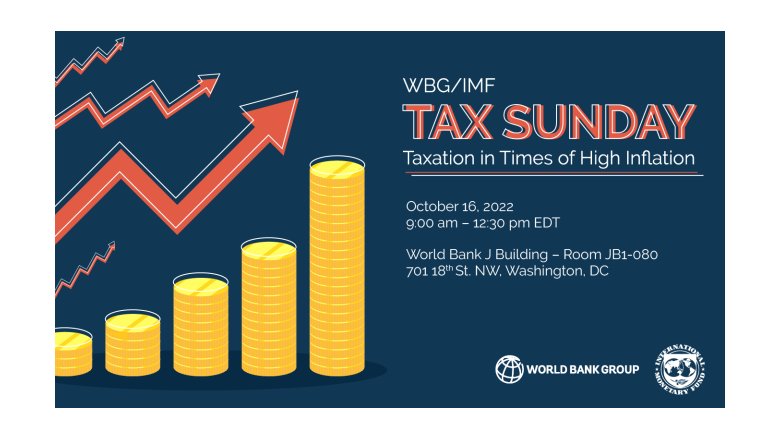The world economy continues to be negatively impacted by the effects of multiple shocks, notably the tightening of financial conditions, the lingering effect of COVID, volatility of commodity markets, climate change, fragility and conflict, and supply chain disruptions have fueled a rise in inflation world-wide. High inflation exerts an excessive burden on the poor with disproportionate increase in the food and energy prices, which makes up a larger share of their consumption, while their nominal income does not keep up.
High inflation complicates revenue (as well as public spending) policies. Two distinct channels are important in tax policy design in response to high inflation:
First, inflation directly affects tax systems, because nominal features of the tax system are not automatically indexed, nominal gains are taxed, and tax payments are made with a lag. Nominal revenues certainly rise, but the timing and magnitude of real revenue changes depend on country-specific feature of tax systems. Tax systems that are fully neutral to inflation are rare. Achieving full neutrality would require major reforms, but some minor adjustments can address the greatest effects of inflation on revenue and efficiency.
Second, tax policy is one of the potential tools governments might consider using to address the high inflation impact on the poor, notably the impact of high energy and food prices. In responding through tax policy, there is a risk policy mistakes in attempts to rapidly address inflation. The impact of high inflation is compounded by the consequences of policy measures taking in response to COVID, which included tax cuts and administrative leniency, leading to severe revenue losses in some countries.
The upcoming Tax Conference will be held in person on October 16, 2022, from 9:00 am to 12:30 pm EDT. The attendance for this event is by invitation only. For any questions about the Tax Conference, please contact us at tax4dev@worldbank.org.
